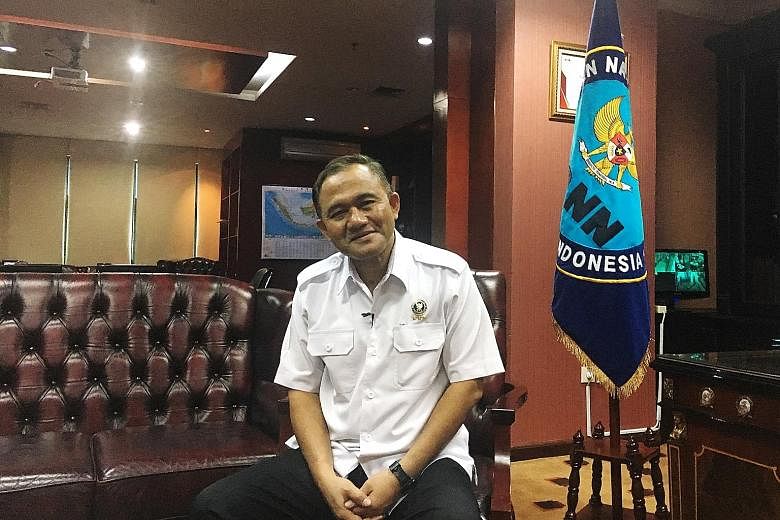JAKARTA • Indonesia's new anti-narcotics chief Heru Winarko has called for an expansion of rehabilitation centres across the country, flagging a new approach in contrast to the war on drugs underway in its neighbour, the Philippines.
More users, addicts and even minor dealers would be diverted into centres run by medical professionals and counsellors rather than heading straight into an over-crowded prison system, Mr Winarko said in an interview on Wednesday.
"With the rehabilitation approach, we cut the demand," he said. "If there is no demand, the supply will not come or will reduce."
Mr Winarko took over as head of Indonesia's anti-narcotics agency in March, replacing Mr Budi Waseso, a former top police officer who advocated surrounding prisons with moats filled with crocodiles and piranhas to stop drug convicts escaping.
Rather than wildlife, Mr Winarko said he planned to set up rehabilitation facilities near prisons. "It is better if there is a rehabilitation centre located close to a prison," he said, noting that a former mental hospital near a correctional facility in Bali was being converted into a centre for offenders to tackle addiction.
"When we do it like this, it will be amazing. The prison becomes a place for guiding people."
Indonesian President Joko Widodo has long warned that the country was gripped by a "drugs emergency" amid assertions by officials - challenged by some experts - that there were more than six million users.
Mr Joko has said drugs posed a bigger danger than Islamist militancy and he intensified a drug war that has included the execution of drug traffickers, including some foreigners.
Mr Winarko said there needed to be rapid growth in assessment centres which determine if drug convicts would benefit from therapy rather than incarceration.
The country's 127 rehabilitation centres were inadequate for a population of 250 million, and more should be built and existing facilities better integrated, he said.
REUTERS

